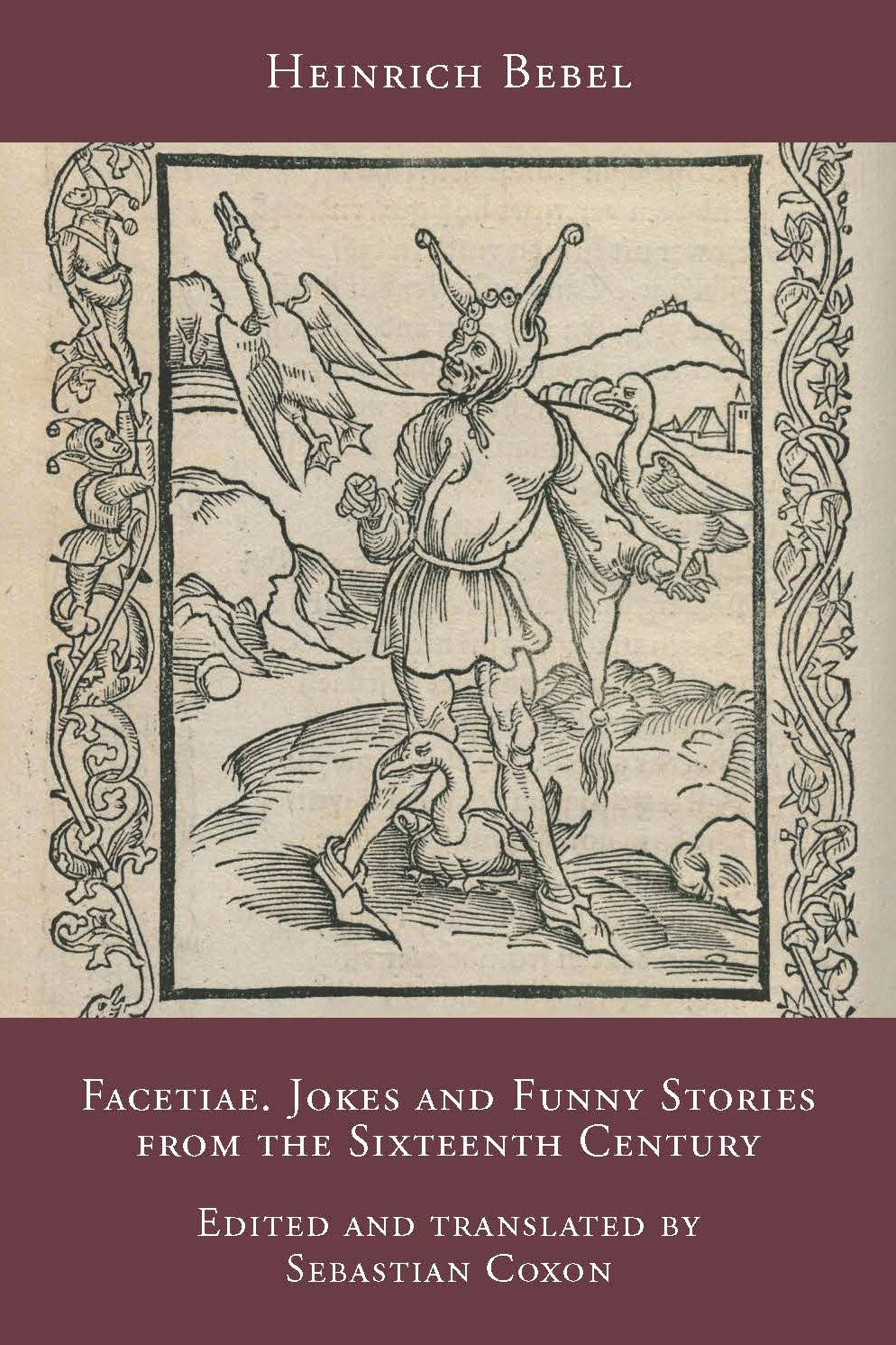Heinrich Bebel, Facetiae. Jokes and Funny Stories from the Sixteenth Century
Edited and translated by Sebastian Coxon - TT16
Regular price
$39.95 CAD
Regular price
Sale price
$39.95 CAD
Unit price
per
Overview
Jokes and funny stories concerning outstanding witticisms and hilariously foolish utterances, for the most part expressed in elegant Latin, were held in high regard by humanists across Europe from the second half of the fifteenth century onwards. It was thus as a matter of national and regional pride that Heinrich Bebel (1472/73–1518), humanist poet and academic at the south-west German University of Tübingen, compiled his three books of facetiae (final authorized edition appearing in 1514).
The resulting collection of over four hundred anecdotes, quips and amusing proverbial expressions constitutes an extraordinary literary record of what Bebel and his circle of friends, including a number of convivial abbots and priests, found amusing and worthy of their laughter. As a veritable treasure trove for those interested in the history of joking and comedy, Bebel’s collection contains valuable evidence pertaining to both the theory of and practices associated with laughter on the eve of the Reformation in Germany, including the institution of the court fool or jester. This first complete translation in English of Bebel’s many jokes and funny anecdotes will provide readers with a window into a Northern European culture of Renaissance laughter that is learned and yet celebrates the popular, composed in Latin and yet not deaf to the vernacular.
Sebastian Coxon is Reader in German at University College London (UCL). He has published on pre-modern comedy and laughter, medieval German literature, and beards as a literary and iconographic motif. His most recent book is Beards and Texts. Images of Masculinity in Medieval German Literature (UCL Press, 2021).
250 pp., 10 ill.
Contents
Introduction
Heinrich Bebel: Life and Works
Bebel's Facetiae: Prints and Texts
Literary Historical Context
Contents -- Themes -- Issues
Sixteenth-Century Reception
Note on the Translation
Bebel's Facetiae: Prints and Texts
Literary Historical Context
Contents -- Themes -- Issues
Sixteenth-Century Reception
Note on the Translation
Heinrich Bebel's Facetiae
Books I-II
Heinrich Bebel's book to the reader
Maximilian Transsylvanus of Brussels to the reader
Heinrich Bebel to Peter Jacobi of Arden
Facetiae
Heinrich Bebel to Peter Jacobi of Arlon
Facetiae
Heinrich Bebel to Veit von Fürst
Heinrich Bebel to the reader
Facetiae
Heinrich Bebel to Matthas Schürer
Epitaphs of Melchior, fool of Adelburg
Paul Hug to the reader
Poem by Johannes Weber of Weissenhorn concerning Bebel's Facetiae
Books I-II
Heinrich Bebel's book to the reader
Maximilian Transsylvanus of Brussels to the reader
Heinrich Bebel to Peter Jacobi of Arden
Facetiae
Heinrich Bebel to Peter Jacobi of Arlon
Facetiae
Heinrich Bebel to Veit von Fürst
Heinrich Bebel to the reader
Facetiae
Heinrich Bebel to Matthas Schürer
Epitaphs of Melchior, fool of Adelburg
Paul Hug to the reader
Poem by Johannes Weber of Weissenhorn concerning Bebel's Facetiae
List of Notable Variants
Praise
“Sebastian Coxon’s scholarly and lively translation (the first into English) makes available to a new audience Heinrich Bebel’s colourful compendium of some 440 mini-texts, assembled in various stages between around 1506 and 1512. Very popular in their time, these Facetiae provide significant insights not only into what the humanist Bebel and his Latin-reading audiences found funny, but also into their preoccupations and prejudices – about the Church, education, women, foreigners, Jews, and much else besides.” – Nigel Harris, University of Birmingham
“Sebastian Coxon’s translation of Heinrich Bebel’s Facetiae is remarkable: not only does it flow smoothly along, but its colourful idioms and phrases do justice to the special nature of Bebel’s original. What’s more, the learned introduction and informative footnotes broaden our understanding of the various stories and their literary and cultural context.” – Klaus Ridder, Universität Tübingen
Reviews
Thomas Baier, Universität Würzburg, Institut für Klassische Philologie in Arbitrium 41, no. 3 (2023): 283-287. https://doi.org/10.1515/arb-2023-0054
Ludica. Annali di storia e civilta del gioco, 28,2022, pp. 143-44. Reviewed by Peter Burke.
Couldn't load pickup availability


